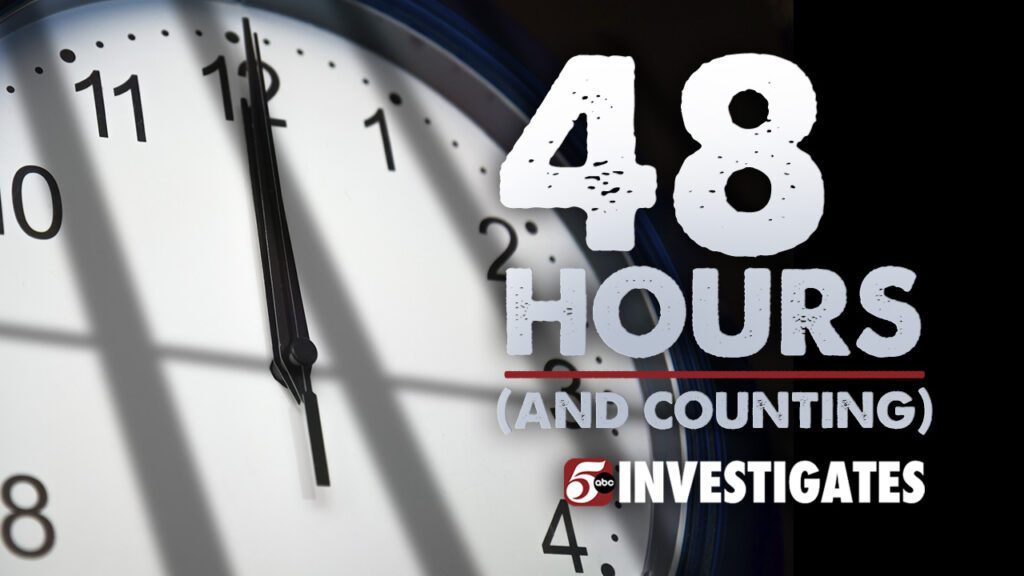County attorneys, sheriffs say ‘last-minute’ change will gut 48-hour law
Sheriffs and county attorneys across Minnesota are urgently rallying against a proposed law change that they say would keep inmates with mental illnesses “languishing” in jails instead of receiving treatment from the state.
In a letter to lawmakers, the Minnesota County Attorney’s Association and the Minnesota Sheriff’s Association expressed “strong opposition” to changing what’s known as the 48-hour rule.
The law currently requires the Department of Human Services (DHS) to transfer inmates to a state-run facility within 48 hours of a civil commitment.
Last year, 5 INVESTIGATES found DHS is consistently violating the law. Inmates who have mental illness remained in jail instead of a hospital for days, weeks, and even months past the deadline.
The violations led to complaints from sheriffs, rebukes from judges, and class action lawsuits from inmates.
DHS has blamed its failure to comply with the law on a lack of hospital beds and staffing shortages.
This month, DHS Commissioner Jodi Harpstead and Attorney General Keith Ellison testified at the state capitol that the law should be amended so that the agency is only required to move an inmate into a state facility once a bed is available.

Ellison said lawmakers could give DHS “more flexibility” and “make it such that we are not the target of the vast amount of litigation that we’re facing at this very moment.”
“Setting us up for failure”
But that suggestion is now drawing a strong rebuke from law enforcement across the state.
Sheriffs and county attorneys announced a press conference for late Monday night to “decry” the last-minute law change.
In their letter sent late last week, they argued the proposed change would undermine the intent of the 48-hour rule, which was to protect vulnerable people in need.
“The 48-hour rule should be reformed; not negated,” they wrote.
They added that individuals who have been civilly committed because of a mental illness are too vulnerable to be kept in jail for such long periods of time.
“They are often a safety risk to other inmates, jail employees, and even themselves,” the letter reads. “Too often jail staff are attacked by inmates suffering delusions or another crisis.”
In an interview with 5 INVESTIGATES on Monday, Hennepin County Sheriff Dewanna Witt said lawmakers and DHS should be looking for ways to expand staffing and capacity at state mental health hospitals.
“Legislators cannot continue to dehumanize this issue by passing the buck onto jails,” Witt said. “Why would you be setting these people who need care up for failure? It’s setting us up for failure. It’s setting the system up for failure.”
In a statement to 5 INVESTIGATES, DHS responded to criticism that it’s seeking to change the law rather than address the mental health crisis.
“Amending the law as proposed will give a task force time to take a thorough and thoughtful look at how the law has affected individual stakeholders and the mental health system as a whole and to consider whether permanent adjustments to the law are warranted.”